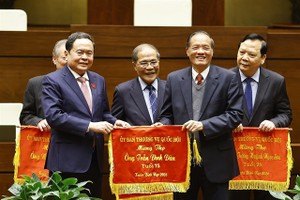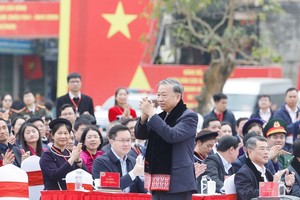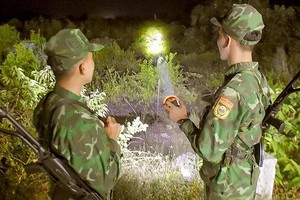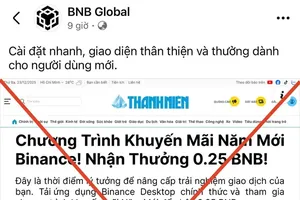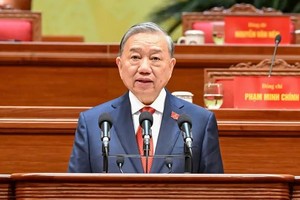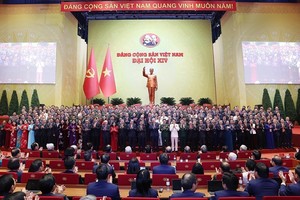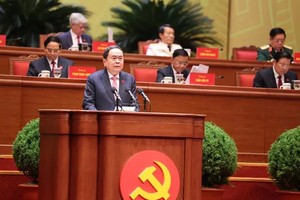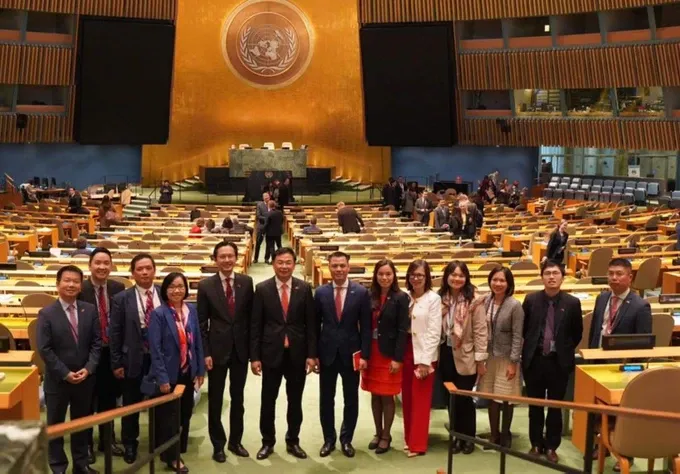
Unerasable footprint of sacrifice
Throughout the arduous journey of revolutionary struggle and national liberation as well as ongoing missions to build and safeguard the homeland, countless patriots made the ultimate sacrifice. Innumerable families carry the enduring weight of losing loved ones. For the nation’s sovereignty and independence, many willingly relinquished personal happiness and the vibrant years of their youth.
The scale of loss is staggering, with nearly 1.2 million heroes and martyrs across the country, and the remains of hundreds of thousands still unidentified. Countless others remain unfound, resting on former battlefields within Vietnam and across borders in Laos and Cambodia, even in the depths of the East Sea.
Across Vietnam, in almost every locality lies solemn martyrs’ cemeteries and monuments. Each grave and inscribed name whispers a powerful tale of individuals who dedicated their entire existence to the nation’s cause. All that noble sacrifice converged on one sacred ideal: Peace!
As April unfolds, a wave of profound emotion washes over Vietnam. Compatriots nationwide joyously commemorate the day of national reunion. Yet, jarringly, discordant voices emerge, twisting history to suggest the anti-American resistance was a mere “civil war”, labeling April 30 as a “national day of mourning” or a “blemish on national history”.
This is obviously a brazen insult to historical truth and a cruel disrespect to the sacrifices of millions of Vietnamese people. These perspectives are not only untrue but deliberately attempt to sow seeds of doubt and division within the national consciousness.
Historical reality demonstrates that in 1954, the victory at Dien Bien Phu compelled France to sign the Geneva Accords, recognizing Vietnam as an independent nation. The 17th Parallel was established as a temporary military demarcation line, with a national reunification election slated within two years.
However, the American imperialism aggressively intervened, installing the Ngo Dinh Diem regime. They deployed military advisors to the South, training and arming the Republic of Vietnam army, while systematically delaying implementation of the Geneva Accords. Through the brutal “denounce Communists, eliminate Communists" campaign and Law 10/59, the US-Diem regime ruthlessly massacred and imprisoned tens of thousands of cadres, party members, and ordinary citizens.
Faced with this terror, the people of the South bravely confronted the enemy. From the “Dong Khoi” uprising in 1960 to the formation of the National Liberation Front of South Vietnam, a series of relentless uprisings ignited, culminating in a widespread people’s war. Simultaneously, the North offered unwavering support in manpower and resources for their southern compatriots.
The fierce resistance compelled the US to escalate through increasingly dangerous military campaigns, including “Special War”, “Local War”, and “Vietnamization of the War”. They also launched the devastating “Destructive War”, unleashing a barrage of bombs upon the North.
The volume of ordnance deployed by the US military is staggering – approximately 15.35 million tonnes, three times the total used in World War II. Beyond bombing the North, American forces saturated the South with over 80 million liters of toxic chemicals, including 60 percent of Agent Orange/dioxin, exposing over 4.8 million people with devastating consequences extending to third generations.
These undeniable facts underscore the fallacy of characterizing the anti-American resistance as a “civil war”. This was a righteous struggle against foreign invaders and their puppet regime. The Republic of Vietnam government was essentially a pawn orchestrated and sustained by massive American aid, collapsing when that lifeline was severed. No legitimate government representing its people would invite foreign powers to desecrate its land and slaughter its citizens.
The narrative portraying April 30 as a “national day of mourning” is a blatant distortion driven by sinister intentions. The victory of April 30, 1975 stands as the peak of a righteous war, marking the definitive end of an anti-people regime.
On that historic day, the people of Saigon and other southern cities poured into the streets with smiles, tears of joy, and bouquets of flowers, welcoming the liberation army. There was no “bloodshed” or “revenge”, but rather embraces of kinship, forgiveness, and tolerance.
Enduring legacy of peace
The victory remains an enduring symbol of Vietnamese patriotism and invincible spirit. It was not merely a military triumph but a resounding victory for national unity, the aspiration for peace, clear-sighted wisdom, and unwavering will. This pivotal victory elevated Vietnam’s status globally, affirming the resilience of a heroic nation. The Vietnamese spirit became an inspiring beacon for independence movements worldwide.
Vietnam closed a chapter of profound suffering and ushered in an era of independence, peace, unity, and development. From that day forward, the country’s rivers and mountains became connected as one figuratively, forever free from invaders. The victory was also a grand national festival – a day of reunion. Millions returned to the embrace of their families, united in looking towards a brighter future.
In the aftermath of reunification, the nation faced immense challenges. However, with unwavering will and relentless effort, Vietnam has steadily risen. From a per capita GDP of less than US$100, it reached nearly $5,000 by 2025. GDP growth has been consistently high, from 6.68 percent in 2015 to 7.09 percent in 2024. Vietnam now stands as the fourth-largest economy in ASEAN and ranks 32nd globally in economic scale.
The average life expectancy has increased from 62 years (1990) to 75 years (2025). The Human Development Index (HDI) falls within the high medium category, and the 2024 World Happiness Report ranked Vietnam 54th out of 137 nations. Vietnam has established diplomatic relations with nearly 200 countries, including 12 comprehensive strategic partners, and has been elected twice as a non-permanent member of the UN Security Council and twice to the Human Rights Council with record-breaking vote tallies.
These figures not only illustrate Vietnam’s remarkable post-war recovery but also underscore the profound significance of the victory of April 30, 1975. The peace that citizens enjoy today is the hard-earned fruit of immeasurable sacrifice, a sacred value painstakingly cultivated by preceding generations. Therefore, history demands respect, protection, and accurate transmission to generations to come.
It is crucial to remain vigilant and actively combat false narratives. This is not merely the responsibility of official bodies but a shared duty of the entire society, particularly the younger generation. Only through a truthful recognition of the country’s history can its citizens safeguard the national independence and sovereignty and confidently stride into the nation’s ascending era.




